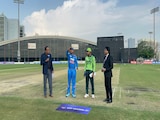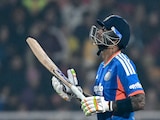The Supreme Court has rejected a married woman's request to terminate her 27-week pregnancy. The court relied on a report by the All India Institute of Medical Sciences that said there is no abnormality in the child.
"Pregnancy is 26 weeks and 5 days. Allowing termination of pregnancy will be a violation of Sections 3 and 5 of the Medical Termination of Pregnancy Act as there is no immediate danger to the mother, and this is not a case of foetal abnormality," Chief Justice of India DY Chandrachud said.
"We cannot stop the heartbeat," the Chief Justice said.
Under the MTP Act, the upper limit for termination of pregnancy is 24 weeks for married women, including survivors of rape, and other vulnerable women such as the differently-abled and minors.
In the last hearing, the petitioner had requested for permission to kill the child through a court order. A mother of two, the woman has said she is suffering from depression and is not in a position to raise a third child, emotionally or financially.
On October 9, the court had allowed her to proceed with the pregnancy. The centre then sought a recall of the order, citing the advice of a panel of doctors at AIIMS Delhi against the abortion.
A two-judge bench of Justice Hima Kohli and Justice BV Nagarathna earlier gave a split verdict in the matter. Following this, the Chief Justice of India-led bench took up the matter.
It had questioned why the woman did not seek permission for abortion earlier. "What was she doing for 26 weeks? She already has two children? Why come now? Do we issue an order for the child's death through a judicial ruling?" Chief Justice Chandrachud had said.
The centre's lawyer said the petitioner cited a court ruling in a rape survivor's plea for permission to abort. "She (petitioner) is no rape survivor. She is not a minor. What was she doing for 26 weeks?"
The Chief Justice of India had stressed that the baby was not represented in the matter. "We have to look into the rights of the unborn child," he had said.
The Supreme Court had said one option was to let the child be born, and the government can then look after it. The court underlined that a hasty delivery at this point may lead to deformities in the foetus. "If the child is born with deformities now, no one will want to adopt," the Chief Justice had said.















